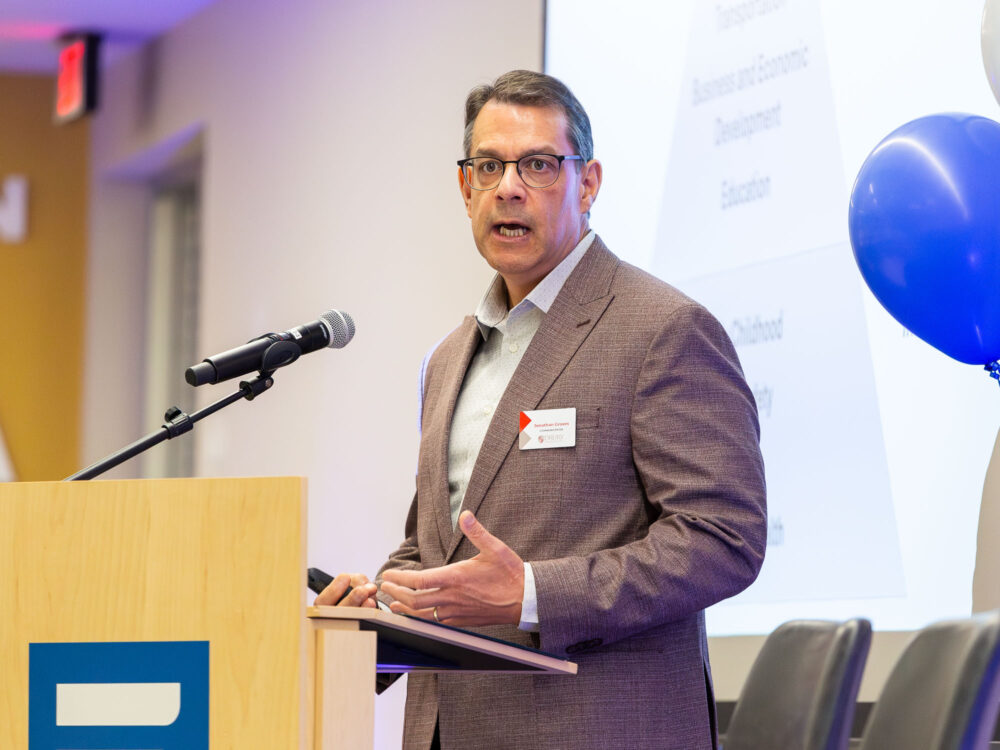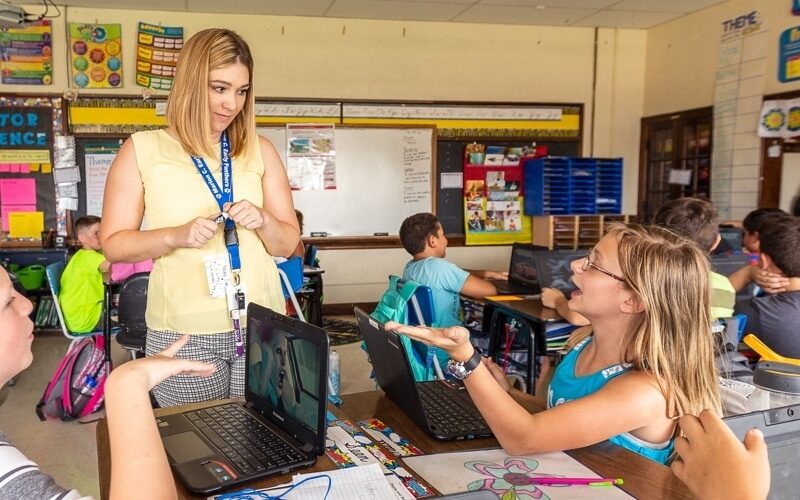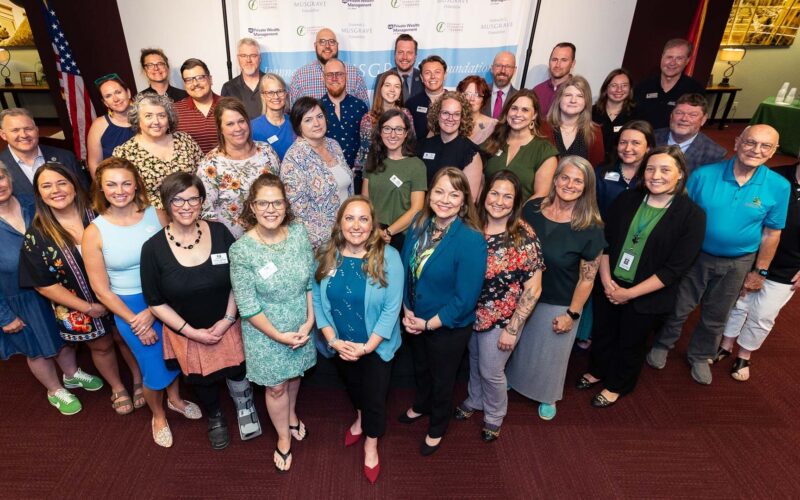Oct. 4, 2024
Biennial report to be published by Ozarks Public Health Institute going forward
The 2024 edition of the Community Focus Report — a collaborative effort of Community Foundation of the Ozarks, Junior League of Springfield, Springfield Area Chamber of Commerce, Springfield-Greene County Library District, United Way of the Ozarks and more than 100 volunteers — was released today during an event at the efactory in downtown Springfield.
Typically published biennially, the Springfield area’s community report card is produced by committees of local leaders and subject-matter experts that review 11 key topics and identify Red Flags (challenges) and Blue Ribbons (strengths) for those areas. Now in its 20th year, the report was first published in 2004 following the Chamber’s 2003 Community Leadership Visit to Lexington, Kentucky, which published a similar report of the strengths and challenges unique to its community.
The Community Focus Report is a critical document for community leaders, agencies and institutions. Nonprofits reference the report when pursuing grants, while the CFO uses it to guide its Springfield-area grantmaking. Leadership Springfield and Give 5 have built training curricula around Red Flags and Blue Ribbons. Faith-based organizations, community groups and university classes have developed individual projects using it as a guiding document.
Lynne Meyerkord, a member of the CFO Board of Directors, chairs the report’s steering committee; Dr. Jonathan Groves, chair of Drury University’s Communication Department, serves as facilitator.
“This work, from the past through today, has provided rich conversations for our community and opportunities to explore what we do well and where we must improve,” Groves and Meyerkord write in the 2024 report’s introduction. “We thank the dozens of volunteers who have put their stamp on this community endeavor with their commitment and dedication.”
Among the key takeaways from the 2024 report:
- Strides made on mental health, poverty: Over the past few years, the community’s focus on mental health has led to successes; however, unresolved issues are connected to a variety of Red Flags, particularly substance-use issues and suicide mortality. A similar concentrated focus on poverty has had a long-term impact, as the percentage of households in poverty has declined — but about 1 in 5 individuals still fall within that category in the city.
- Child care, housing pose increased challenges: Supporting children before they reach school age has long been a focus, but the community is experiencing gaps that impact families and employers: A local study conducted in September 2023 found only enough spots for 59% of the children who need care. Springfield has also seen a rise in its unsheltered population, and rents have increased in recent years. The need for attainable housing has become a top community priority.
- Making new community connections: Several community and government organizations have seen retirements of successful top leaders, which will require forging new networks and relationships among organizations to ensure continued collaboration, a hallmark of our area’s ability to tackle Red Flags.
Download a PDF of the full 2024 report, and find all previous editions at springfieldcommunityfocus.org.

Dr. Jonathan Groves presents on the 2024 edition of the Community Focus Report, which "in an age of mis- and disinformation, remains a trusted starting point" for community research.
Future of the Community Focus Report:
After 20 years of guidance from the five original funding partners, the management of the Community Focus initiative is transitioning to Ozarks Public Health Institute at Missouri State University, where it will be supported by full-time staff and expanded resources.
For the past two years, Traci Nash, Doug Neidigh and Alan Tinkler at MSU researched and developed a new model for the report that will engage Community Partnership of the Ozarks’ network of collaboratives to not only identify Blue Ribbons and Red Flags, but also set shared goals and metrics to track the community’s progress. Nash now serves as the Community Focus initiative’s transition consultant.
In addition to publishing the biennial report — the next due in 2026 — the team at OPHI will produce an online dashboard to track local data, build presentations for the topic areas, and host workshops with the CPO collaboratives and other community groups to set informed, measurable goals.
“The volunteers who built the original Community Focus Report provided a sustainable pathway for positive change and gave us a gift that continues to inspire,” Nash writes in the 2024 report. “Its new home at OPHI offers opportunities to deepen connections and increase engagement with more frequent and consistent data analysis for the community’s benefit.”



